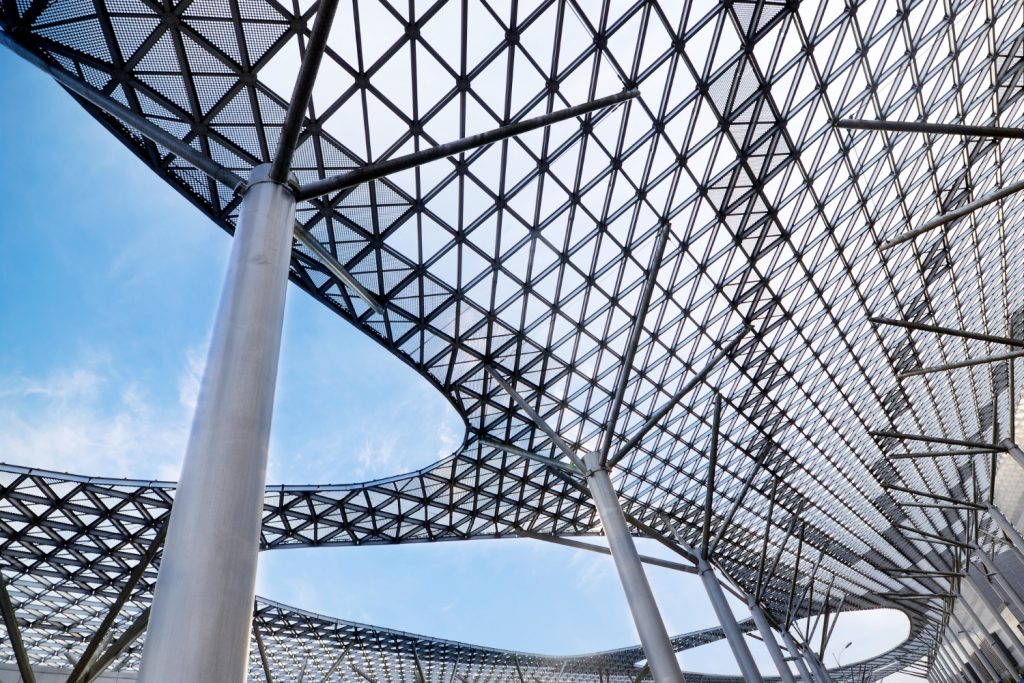Designing industrial structures is a complex task that requires balancing efficiency, cost-effectiveness, and functionality. At GC44, we specialize in creating industrial buildings that meet the highest standards of performance and sustainability. Here are some best practices to guide your next industrial construction project.
1. Understand the Purpose and Requirements
Before you start designing, it’s crucial to have a clear understanding of the building’s purpose and the specific requirements it must meet. This will guide every aspect of the design and construction process.
Key Considerations:
- Type of Industry: Different industries have unique requirements for space, layout, and equipment.
- Operational Needs: Consider workflow, equipment placement, and storage needs.
- Future Expansion: Plan for potential future growth and scalability.
2. Optimize the Layout
An efficient layout maximizes the use of space and improves operational efficiency. This involves careful planning and consideration of various factors such as material flow, employee movement, and equipment placement.
Key Features:
- Open Floor Plan: Allows for flexibility and easy reconfiguration.
- Zoning: Create distinct zones for different operations to streamline processes.
- Accessibility: Ensure easy access to all areas for maintenance and operations.
3. Use Durable and Sustainable Materials
Choosing the right materials is essential for the longevity and sustainability of industrial structures. Durable materials reduce maintenance costs, while sustainable options can improve energy efficiency and reduce environmental impact.
Material Choices:
- Steel: Highly durable and versatile, ideal for structural frames.
- Concrete: Strong and long-lasting, suitable for floors and walls.
- Insulated Panels: Improve energy efficiency and provide thermal insulation.
4. Implement Advanced Technologies
Incorporating advanced technologies can enhance the functionality and efficiency of industrial buildings. This includes automation systems, smart sensors, and energy management systems.
Technological Innovations:
- Automation: Streamline operations with automated systems for lighting, heating, and cooling.
- Smart Sensors: Monitor and manage building conditions in real-time.
- Energy Management: Optimize energy use with advanced management systems.
5. Focus on Safety and Compliance
Ensuring safety and compliance with local regulations is paramount in industrial construction. This involves integrating safety features and adhering to all relevant building codes and standards.
Safety Measures:
- Fire Safety: Install fire detection and suppression systems.
- Emergency Exits: Ensure clear and accessible emergency exits.
- Compliance: Regularly review and adhere to local building codes and safety standards.
6. Plan for Efficient Energy Use
Energy efficiency is a key consideration in industrial design. Implementing energy-saving measures can significantly reduce operational costs and environmental impact.
Energy Efficiency Strategies:
- Natural Lighting: Maximize the use of natural light to reduce electricity consumption.
- Insulation: Use high-quality insulation to maintain optimal indoor temperatures.
- Renewable Energy: Consider incorporating renewable energy sources such as solar panels.
7. Engage Experienced Professionals
Working with experienced professionals can ensure the success of your industrial construction project. At GC44, our team of experts brings extensive knowledge and expertise to every project.
Benefits of Professional Expertise:
- Comprehensive Planning: Detailed and thorough planning to meet all requirements.
- Quality Workmanship: High standards of craftsmanship and attention to detail.
- Project Management: Efficient project management to ensure timely and budget-friendly completion.
Conclusion
Designing efficient and cost-effective industrial structures requires careful planning, the right materials, advanced technologies, and a focus on safety and compliance. By following these best practices, you can create an industrial building that meets all your operational needs while remaining within budget.
Ready to start your industrial construction project? Contact GC44 today to learn how we can help you achieve your goals with expert design and construction services.






